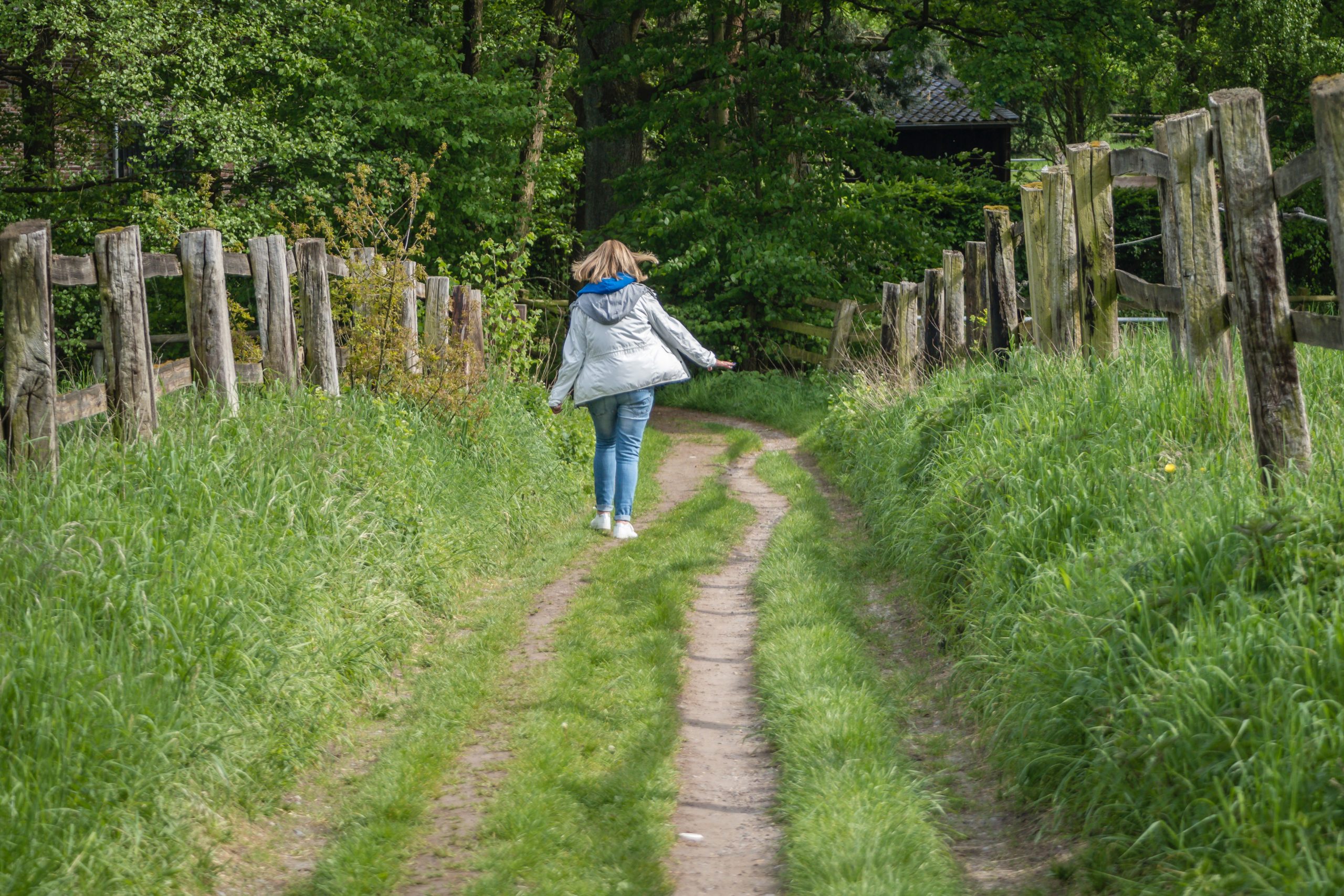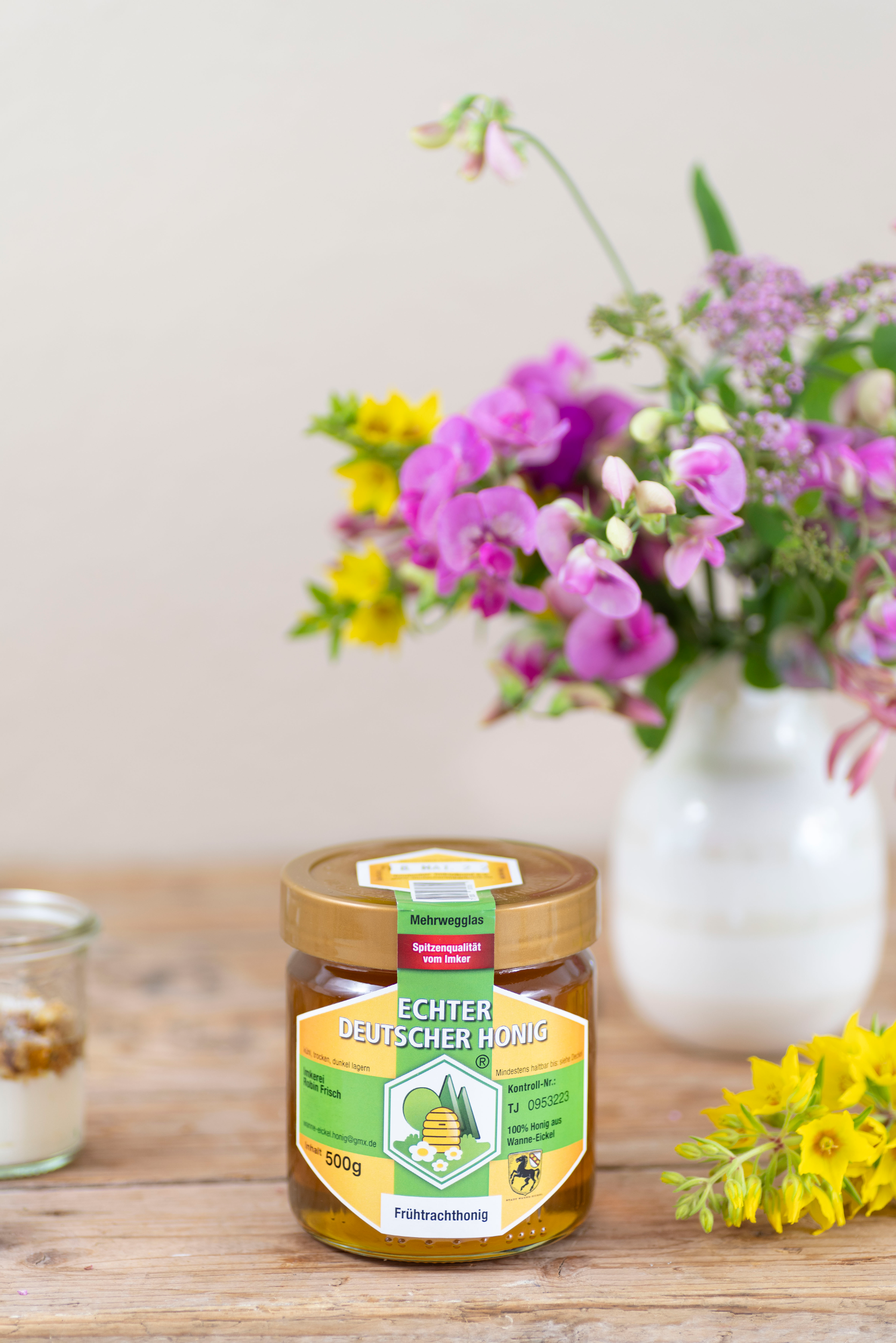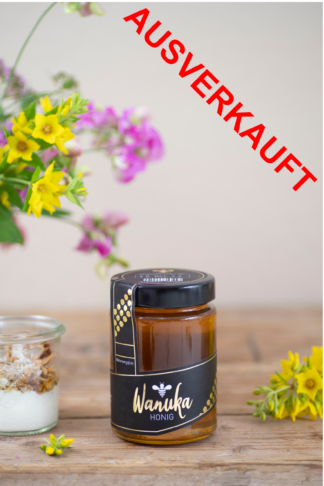
City Honey versus land Honey
We compare city honey versus country honey.
The idyll of country life is deceptive. It is true that we can cycle through picturesque landscapes in many places in Germany. We enjoy the sweeping views over fields and lush green pastures. This idyll is disturbed at harvest time at the latest, as huge machines are put to work. Nitrogen oxides and diesel exhaust pollute the air. Honey bees easily lose their bearings as a result. They find it harder to head for suitable flowers and often cannot find their way back to the hive.
We like to suppress how much fertilizer and liquid manure was previously applied to the fields. Pesticides such as glyphosate are extremely popular with German farmers. Many a German beekeeper has had to destroy his entire honey harvest because it was contaminated with glyphosate. We tend to ignore the fact that in the middle of idyllic farmland there are experimental fields where genetically modified plants are grown. The wind carries their pollen with it. However, such trial fields should actually be strictly separated from the fields of conventional and organic farmers.
Why are beekeepers increasingly using urban areas?
The fact is that many hobby and professional beekeepers are now deliberately settling in urban areas to produce excellent honey. In doing so, they are overcoming several problems at once.
On the one hand, such beekeepers ensure the preservation of honey bees. Their numbers have been decimated considerably in recent years. This is due to pests, but also to the excesses of intensive agriculture. Increasing monocultures, the increased use of pesticides and factory farming are resulting in less and less varied bee food. As a result, our honey bees are increasingly falling victim to diseases.
Secondly, the city beekeepers actively pollinate plants in the city through their beehives. Thirdly, the urban beehives also produce wonderfully tasting mixed honeys. These are characterized by a low pollutant content and a round taste. City honey is currently even the best quality that honey lovers can buy in Germany. This fact is sure to surprise some honey lovers. For some people, it requires more explanation than their beloved varietal honey
Glyphosate and pesticide in city honey?
Are glyphosate and pesticides found in urban honey?
City honey versus country honey part 2
Informed honey lovers deliberately do not choose zero-eight-fifteen honey from the supermarket. Most of these honeys are inferior because they have too high a water content and have not matured long enough in the hive. Their taste is adapted to the mainstream. Typical characteristics of single-variety honeys are neutralized. Imported honeys also consist of mixtures of several types of honey. They are no longer natural.
Honey connoisseurs who demand quality and aroma often bring back tasty honey specialties from small beekeepers in Greece. Some buy their honey directly from the beekeeper. Others trust a reliable stall holder at a weekly market. Delicatessen stores or the internet are also good sources for buying uncontaminated and delicious-tasting honey specialties.
The belief that country honey is fundamentally better than city honey is no longer tenable. The quality characteristics have shifted in favor of city honey in recent years. Our city honey can compete with almost any competitor from the countryside.

Echter Deutscher Honig Wanne-Eickel Sommertracht
Einzigartiger Honig direkt aus der Stadt Wanne-Eickel. Im Glas befindet sich nur das, was die Bienen in den Sommer-Monaten (Mai-Aug) gefunden haben.
Bei der Sorte Sommertracht hängen Geschmack, Geruch, Konsistenz und Farbe vom gesammelten Nektar ab. Angeflogen werden die von den Honigbienen bevorzugten Sommertrachtpflanzen wie beispielsweise Sonnenblumen, Himbeersträucher, Linden oder Lavendel. Der Sommertracht Honig schmeckt von lieblich bis herzhaft und die Färbung ist meist gold intensiver.
Aufgrund von Klimabedingungen und Regentagen, der Bepflanzung und Blütezeit ist unser natürlicher Honig immer eine kleine Überraschung.
Unser Honig aus Wanne-Eickel ist absolut regional und wird in aufwendiger Handarbeit in Deutschland hergestellt.
Dieser Honig wird zudem im Deutschen Imkerbund Glas abgefüllt, dies bedeutet wir stellen uns noch strengeren Qualitätskontrollen als gesetzlich vorgeschrieben. Damit du dir sicher sein kannst das die Qualität auch stimmt.
Teste jetzt die Qualität unseres Wanne-Eickel-Sommertracht-Honigs– er ist regional, er ist natürlich, er schmeckt genial. Er ist nicht erhitzt und ist ein echtes Naturprodukt!
Echter Deutscher Honig Sommertracht
– Flüssig
– Deutscher Imkerbund, unter 18% Wasseranteil
– DIB Glas
– DLG GOLD prämiert
– Echter Stadthonig aus Wanne-Eickel
– pestizidarm
– Ernte Sommer 2024
– Herkunftsland: Deutschland
21,98 € / kg
incl. VAT
Contaminated honey often comes from the countryside
City honey versus country honey part 3
see also here: more of this

We don’t like to believe that blossom or country honey from Germany increasingly contains unpleasant substances such as pyrrolizidine alkaloids, but it doesn’t fit in with our view of honey production. Bee honey is considered one of the most natural spreads.
However, glyphosate or pyrrolizidine alkaloid residues are actually found in an alarming number of European honey samples. These are also found in bee pollen. Harmful ingredients in honey should be just as rare as honey adulterated with cheap honey. For honey lovers, it has long been clear that no one should be fooled by supposedly idyllic images. It is not only the bee mortality of recent years that has led to more and more hobby and small beekeepers moving their hives to urban areas and thus producing honey in the city.
On the one hand, bees are urgently needed here as pollinators. On the other hand, city honey has long been better than its reputation. For example, it has often been proven to contain less nitrogen oxides than country honey. Beekeepers in the city pay close attention to the location of their beehives. Thanks to the lack of factory farming and intensive agriculture with all its excesses, only road traffic is a burden here. However, no urban beekeeper would place his hives next to a highway.
Less contaminated honey comes from the urban area
Soil contamination with pesticides, herbicides or fungicides is significantly lower in urban areas. Many local authorities have also banned the application of glyphosate in urban areas. These are good prospects for beekeepers to produce less contaminated honey.
A striking example of this is our Wanuka Premium city honey. This comes from Wanne-Eickel. It presents itself as a beekeeping masterpiece in the field of city honey. Our city honey is proof that honey not only tastes delicious. In fact, our Wanuka Premium City Honey also suggests that the more diverse urban habitats are more suitable for “Apis mellifera” honey bees. Even experts confirm this.
In North Rhine-Westphalia – for example in the Wanne-Eickel area – there are ideal conditions for our honey bees. They benefit from lush, diverse and varied vegetation. In contrast, there are intensively farmed monocultures that lack field flowers and wild herbs. Our honey bees of the species “Apis mellifera carnic” collect less polluted pollen in the urban area. Our Wanuka premium honey is another example of how urban honey can be offered to people with a clear conscience.
-
 WANUKA Premium Honey 500g15,49 €
WANUKA Premium Honey 500g15,49 €30,99 € / kg
incl. VAT
-
 WANUKA Premium Honey 400g13,49 €
WANUKA Premium Honey 400g13,49 €33,73 € / kg
incl. VAT
Our premium honey has a convincing taste anyway. It also benefits from a variety of urban flavor impulses that are no longer available in the countryside. This city honey is therefore an aromatic-sweet tasting mixed honey, because a city beekeeper cannot guarantee varietal purity.
City honey is not a trend by chance
Many large German cities have long since recognized the trend. They produce and market urban honey. In doing so, they also ensure the preservation of honey bees and the pollination of flowers and fruit tree blossoms. We also market the city honey “Honey from Herne”.
The belief that urban honey must contain more nitrogen oxides and more glyphosate cannot be confirmed. On the contrary: on intensively farmed land, far more pollutants are introduced into bee honey than is assumed. It is not only the massive use of pesticides by conventional farmers that leaves its fatal traces in honey. Honey bees cannot tell the difference between an organic farmer cultivating a field and a farmer who has to massively increase his yields with agricultural poisons in order to survive.
It has been proven that none of the 300 pesticides tested, no residues from exhaust gases and no heavy metal inputs exceeding the limit value were found in tests involving urban honey. Our Wanuka premium honey is therefore also pleasingly low in pesticides and glyphosate. Our city honey from Wanne Eickel was awarded the top grade “GOLD” by the “Deutsche Landwirtschafts-Ges18ellschaft” (DLG) in 2017. In general, the honey products produced in our country are significantly lower in harmful substances than most types of honey produced abroad.
